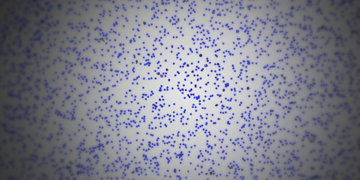
High Sensitivity of Bio-Plex® Multiplex System is Key in Study for Novel Melanoma Therapeutics
alt
Melanoma is an aggressive cancer where early detection is essential for patient survival. The Facchiano lab is developing new anti-proliferation molecules against melanoma and is working to identify new molecular markers at the very early stages of pathology. Here Dr Antonio Facchiano discusses the merits of using the Bio-Plex technology to measure dose-dependent changes in expression levels of growth and angiogenic factors in cell lysates and supernatants.

Bio-Plex® Multiplex System is Key in Novel Melanoma Therapeutics Study
Researchers at the Immaculate Dermopathic Institute (IDI-IRCCS, Rome) are using Bio-Plex technology in developing new anti-proliferation molecules and markers at the early stages of melanoma pathology. Dr Antonio Facchiano discusses how Bio-Plex has expedited the lab’s research.

Focus on the Biology: Bio-Rad’s New Bio-Plex Data Pro™ Software Simplifies Multiplex Data Analysis
Many instruments offer multiplexing capability for biomarker measurements. But to handle and make sense of the huge amount of multiplex data requires sophisticated software like Bio-Plex Data Pro, which simplifies organization, import, sorting and visualization of data, and performing calculations and statistical analyses.

Multiplex Analysis of Inflammatory Markers Using Bio-Plex Pro™ Human Th17 Cytokine Assays
The T-helper cell (Th17) pathway has been implicated in several autoimmune diseases and in cancer. New magnetic bead–based assays have been developed for several biomarkers in this pathway. The performance characteristics of these assays are evaluated from data on intra- and inter-assay precision, standard curve recovery, cross reactivity, and linearity of dilution.

Bio-Plex® System in Korea
Dr Hunseok Lee of Seoul National University explains why it was advantageous for him to use the Bio-Plex system to measure cytokine levels in patients administered with the new cancer vaccine that his laboratory has developed.

Bio-Plex® System in Korea — Seeking to Improve Outcomes for Cancer Patients
Dr Hunseok Lee has known since childhood that he wanted to grow up to become a scientist. “You get to wear white gowns, look through a microscope at various substances so small they can’t be seen by the naked eye — those things were very attractive to me when I was young,” says Lee. But the realities of putting research into practice and translating ideas into experiments have proven far more strenuous than the young Lee anticipated.

New Multiplex Assays for Th17 Cytokine Research
The Bio-Plex Pro human Th17 cytokine panel is a unique blend of magnetic bead-based multiplex immunoassays for the robust and reproducible measurement of 15+1 soluble proteins involved in the T-helper cell type 17 immune response pathway.

Bio-Rad Introduces New Bio-Plex® Human Cancer Assays
Bio-Plex Pro™ Human Cancer Biomarker Panel 1 is a unique blend of magnetic bead-based assays designed to meet the needs of the most discerning preclinical and clinical researchers.

Accurate Counting of Bio-Plex® Magnetic or Polystyrene Beads Using the TC10™ Automated Cell Counter
This report demonstrates that the TC10 automated cell counter is a suitable alternative to the Coulter Counter and hemocytometer for the preparation of custom Bio-Plex assays.

Bio-Plex® System Bench to Bedside
Watch how the Bio-Plex® suspension array system has contributed to research findings in Dr Francis Spinale and Dr Steven Kornblau’s laboratories that have the potential to impact screening and treatment of disease.
